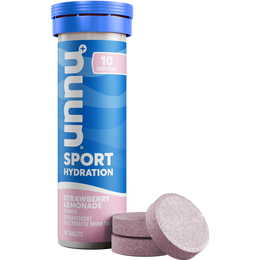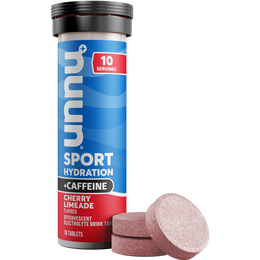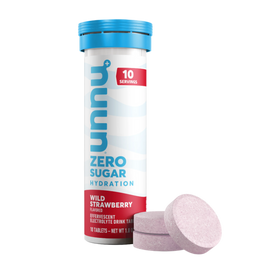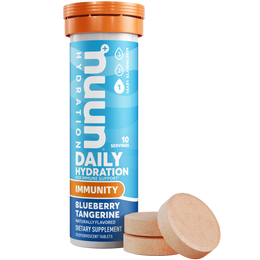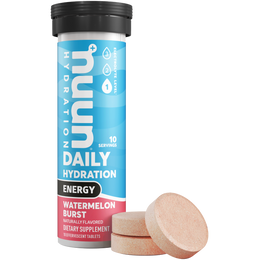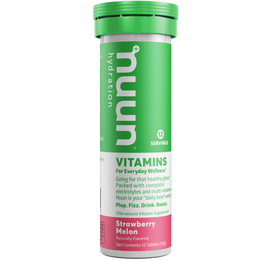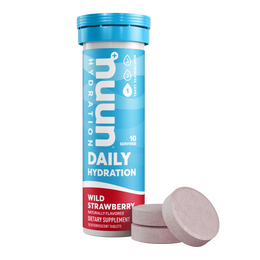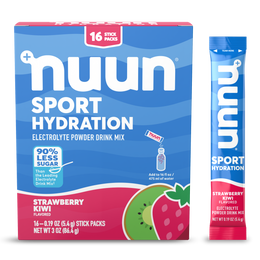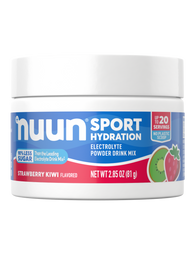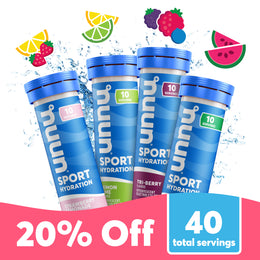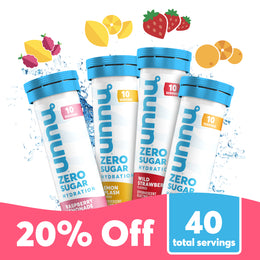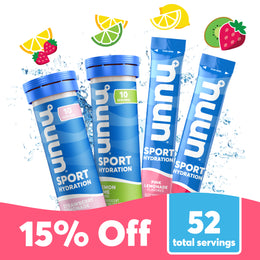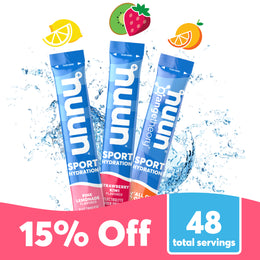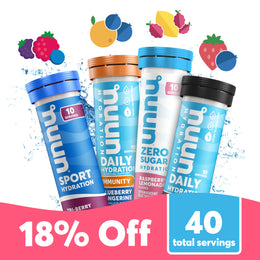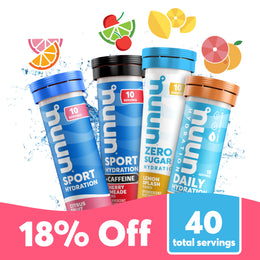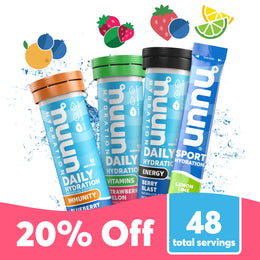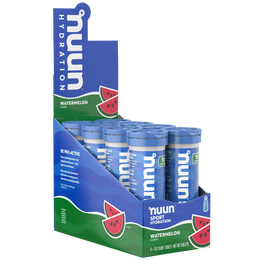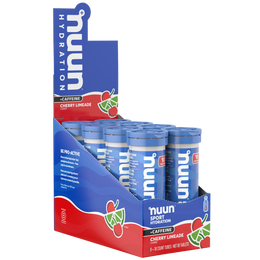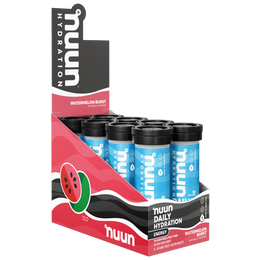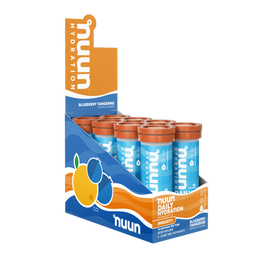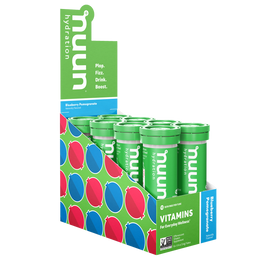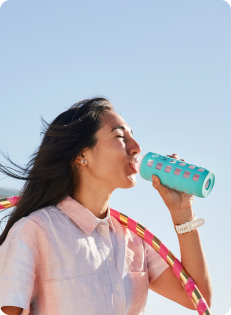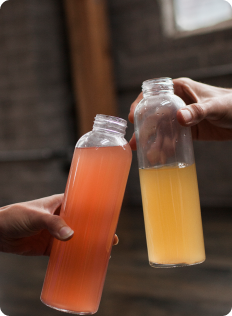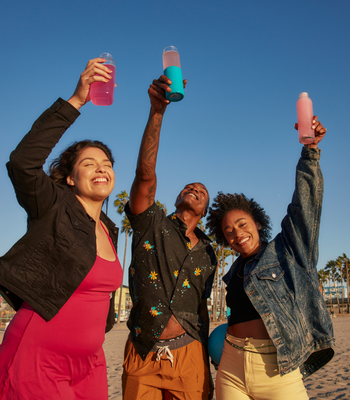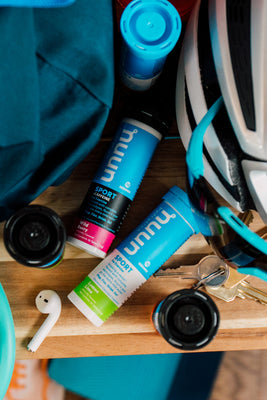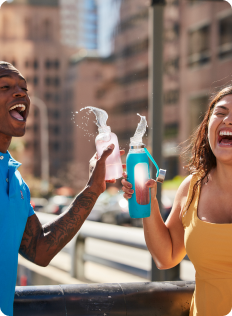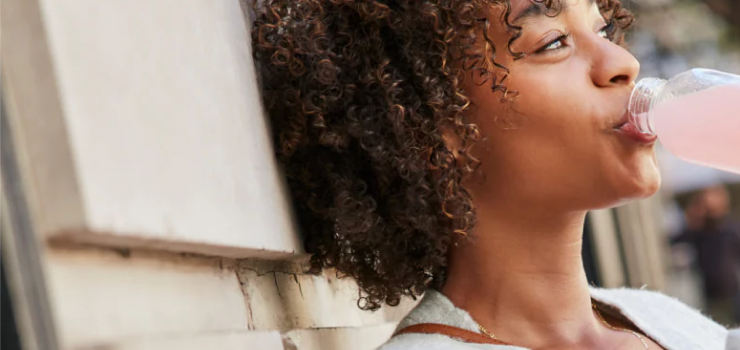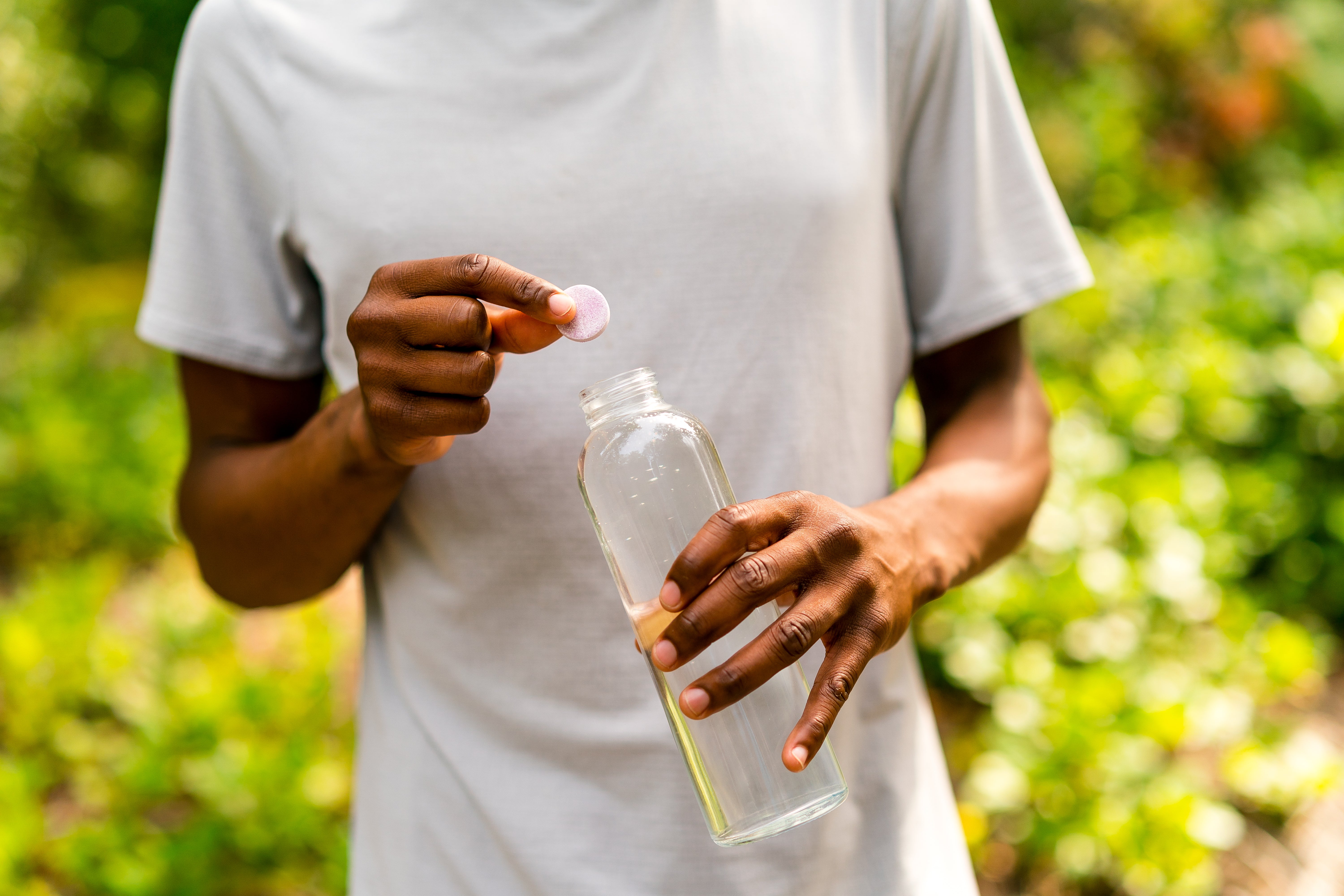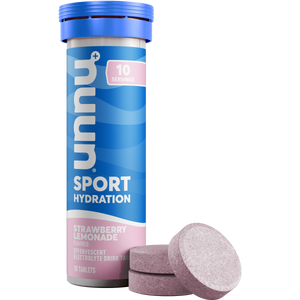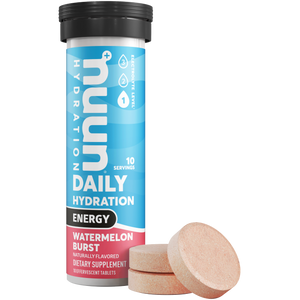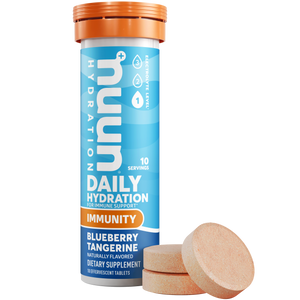Drinking enough water throughout the day isn’t easy. Too often, you simply get caught up in whatever you’re doing — whether you’re working, socializing, or exercising — to remember to hydrate.
But if you’re not drinking enough water to achieve optimal hydration, you likely won’t feel your best. According to a study published in Nutrition Reviews, even a body water loss of just 1-2% can begin to impact your cognitive abilities, which means you won’t be able to perform as well at work or be fully mentally present with your friends and family. And eventually, you could end up dealing with symptoms of dehydration, like dizziness, dry mouth, and fatigue.
"Even a body water loss of just 1-2% can begin to impact your cognitive abilities."
If you find yourself thirsty or on the brink of dehydration, you probably want to know how to rehydrate as fast as possible, before your dehydration gets worse.
Below, we’ll cover not only how to hydrate fast, but also how to restore electrolytes fast, which is an essential factor in water absorption and hydration. We’ll also share some ways to help you take in more fluids overall, so that you can make sure you’re drinking enough water throughout the day to keep you going.
Key Takeaways
- Electrolytes Are Essential for Fast Hydration: Plain water alone isn’t always enough— adding electrolytes like sodium and potassium helps your body absorb fluids more efficiently and restore balance quickly.
- Drink Strategically for Better Absorption: Hydration is more effective when fluids are consumed in moderate, steady amounts rather than all at once. Hypotonic solutions and lower-carb beverages support faster absorption.
- Nuun Sport Offers Rapid Rehydration Backed by Science: Formulated using WHO Oral Rehydration Solution guidelines, Nuun Sport provides a quick and effective option for rehydrating when symptoms of dehydration arise.
How Long Does It Take to Rehydrate?
The speed of hydration depends on your starting level of dehydration. If you’re severely
dehydrated, you will need to take in more fluids to rehydrate.
Severe Dehydration
Mild dehydration can turn into severe dehydration during extreme temperature exposure, in the case of illnesses that cause diarrhea or vomiting, certain medications, or simply not drinking enough water for an extended period.
But what about in the case of mild dehydration? One research study demonstrated that subjects who were mildly dehydrated could reach normal levels of hydration within 45 minutes by taking in 600 mL of water or a combination of salt and carbohydrate electrolyte solutions (CES).
Symptoms of Severe Dehydration
According to the Mayo Clinic, symptoms of severe dehydration include:
- Trouble concentrating or communicating
- Disorientation or irritability
- Not sweating
- Not urinating
- Poor skin turgor, or skin elasticity
- Trouble keeping down fluids
In the case of severe dehydration, contact your doctor.
How to Hydrate Fast
While intravenous therapy (IV) can be used in some situations to quickly treat dehydration, it’s not an everyday solution. IVs are often reserved for emergency treatment, as most people aren’t qualified to set up IV treatment on their own. Even mobile or local IV therapy businesses, which can provide IV infusions on demand, may have wait times in addition to the time it takes for you to get to the business (or the mobile business to get to you).
The solution also isn’t to simply drink large amounts of water as quickly as you can. Drinking water alone can flush out electrolytes and fiber from your body, which can, in severe cases, lead to a serious condition called hyponatremia.
However, there are simple tips for how to hydrate fast at home. By taking in the right fluids in the correct way, you can speed up your rehydration.
1. Use an oral rehydration solution (ORS)
Today, many health organizations, including the WHO, UNICEF, and the American Academy of Pediatrics, recommend using ORS to treat dehydration.
An effective Oral Rehydration Solution contains:
- Sodium, which helps your body absorb nutrients.
- Glucose, which helps you absorb sodium and energizes your body.
- Electrolytes, like potassium and chloride, offer many benefits, including maintaining ideal fluid balance and alleviating cramps.
In addition, an ORS that is hypotonic can speed up the hydration process. Hypotonic solutions contain a lower concentration of electrolytes than the body, which allows salts and fluids to be absorbed more quickly by the bloodstream. Overall, this can result in quicker rehydration and a faster recovery. After a workout, reach for an ORS like Nuun Sport in delicious flavors that help replenish electrolytes.
2. Improve water absorption by speeding up gastric emptying
When you hydrate, fluids must pass through your stomach and into your small intestine before they are absorbed by your bloodstream. This is called gastric emptying. You can speed up this process — and allow those fluids to get to your cells faster — with a couple of small adjustments to how you hydrate:
-
Adjust your volume.
If you are unable to add electrolytes to your water for speedy absorption, there are ways to make sure your plain water is going to work for you. Rather than taking small sips of plain water throughout the day, it may be more beneficial to take in a larger volume at a time. Studies have shown that a larger volume of water puts more pressure on your stomach and digestive system, which speeds up gastric emptying.
-
Consider carbs.
The amount of carbohydrates in your drink can also affect gastric emptying. Drinks with 6% carbohydrates or more, like juice or soda, linger in your stomach for a longer period, delaying gastric emptying. A lower-carb fluid can move through your body faster.
Nuun Endurance is a smart solution that combines optimized electrolytes and quality ingredients in a precise ratio of carbs to water, supporting effective gastric emptying while delivering powerful hydration for exceptional endurance workouts.
Ultimately, the speed of hydration comes down to selecting the right drink and taking in a larger volume of fluids at a time to improve water absorption. With these tips in mind, you can keep your hydration at an optimal level.
How to Stay Ahead of Your Hydration
Ideally, you won’t wait until you experience symptoms of dehydration to begin hydrating. But drinking enough to stay fully hydrated is easier said than done.
According to one study, 77% of respondents said they did not consume enough water daily to meet their health needs.
How can you improve your chances of staying hydrated? Here are a few tips:
1. Make it taste good
Many people say they don’t drink water because they simply don’t like how it tastes. In one survey, nearly one-quarter of respondents cited the taste of water as the reason for not drinking enough water at work. Today, that’s easily remedied. With products designed to enhance the flavor of your water as well as restore electrolytes, you can get the hydration you need and a tasty beverage. You can even use Nuun tablets to create delicious treats like smoothies and soft serve.
2. Alternate types of beverages
When you’re at work or with friends, drinking water probably isn’t your first priority — coffee, tea, soda, or cocktails are much more acceptable in these settings. About 41% of people say they are not drinking enough water at work simply because they prefer to drink other beverages. While it’s fine to consume a variety of beverages, try adding a glass of water or ORS in between each cup of coffee, tea, or soda you consume. (You can also find hydrating, electrolyte-rich drinks that contain caffeine like Nuun Sport +Caffeine Cherry Limeade, if you’re looking for an extra boost.)
3. Get high-tech
Today, there is a range of technology that can help you track your hydration digitally. Apps and water bottles can recommend how much water you need in a day, log how much you’ve had to drink so far, and send you notifications when it’s time to take a few sips.
Summary:
Hydrating fast is possible, but it’s about more than drinking as much water as you can. By choosing fluids with the right mix of electrolytes, you can speed up your rate of rehydration and start feeling your best.
Q: What’s the fastest way to rehydrate?
According to the World Health Organization, the fastest way to rehydrate is by consuming an oral rehydration solution (ORS) that contains a precise balance of electrolytes (sodium, potassium) and glucose.
Q: Are sports drinks better than water for quick hydration?
Yes, in some situations. Sports drinks or electrolyte tablets can rehydrate the body more quickly than plain water during or after intense sweating, illness, or heat exposure, because they replace lost electrolytes and encourage fluid retention.
Q: Can I hydrate quickly without food?
Yes. According to the USDA, foods high in water—like watermelon, cucumber, celery, and oranges, can support rehydration. While not as fast as fluid intake, they contribute water and electrolytes and help sustain hydration.
Q: What are signs that I’m dehydrated?
Early signs of dehydration that require fast rehydration include:
- Dark yellow urine
- Dry mouth or lips
- Fatigue or dizziness
- Headache
- Reduced urination
If left unaddressed, dehydration can escalate to more severe symptoms such as rapid heartbeat or confusion.
